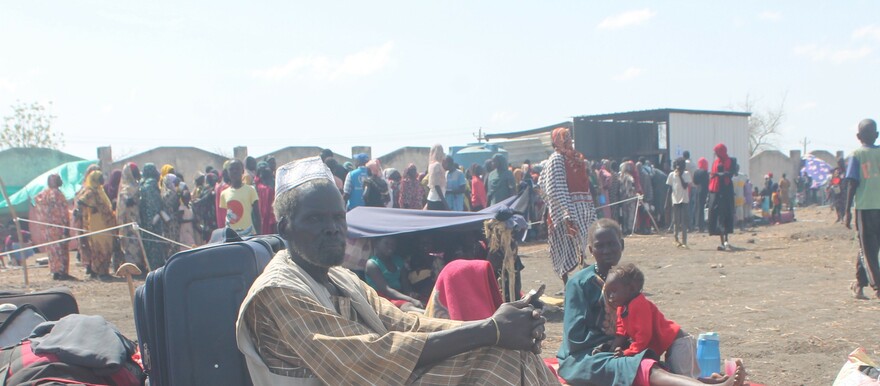Several South Sudanese families who fled the conflict in Sudan said they sold their clothes, bed sheets and other properties for money to pay for transport.
Speaking to Radio Tamazuj at the Joda border crossing in Upper Nile State on Tuesday, several South Sudanese returnees said they were forced to sell clothes and other properties in order to raise enough money for transport.
“We thank God we have come out of Sudan safely and reached here, and we were told that NGOs will take us from the border here to South Sudan,” said Deborah Paul, a mother of three children who has arrived in the border town of Joda.
Deborah is among more than 40,000 people who recently arrived in Upper Nile State after fighting broke out between Sudanese Armed Forces and Paramilitary Rapid Support Forces in mid-April in Khartoum.
Deborah said she fled fighting in Khartoum after the warring parties agreed to a 72-hour ceasefire.
“I have been under the bed for seven days in Sudan, I was unable to go to the market or clinic and there was no food and water,” she narrated.
Although she feels unsafe due to insecurity in Upper Nile, Deborah said: “We fear going back to South Sudan because of the conflict. We don’t know where to go and stay or whether the government will welcome us or not but we say it is better for us to die in our own land.”
“I have three children and their father lives in South Sudan. I came with my boys, but I had to sell my properties to businessmen to raise money for bus fare and this is how we came out of Sudan,” she added.
As violent clashes between military rival factions continued, students found themselves trapped in a life-threatening crisis amidst deteriorating public services.
Last week, the first group of about 26 South Sudanese students who fled the conflict in the Sudanese capital, Khartoum, arrived in Renk County of Upper Nile State.
Jijwok Simon, a 23-year-old secondary school student who escaped Sudan, said many schoolchildren in Sudan are being denied an education due to the conflict.
“The fighting in Sudan has affected us so much, especially the students who have been studying in Sudan, schools have been closed and this is not good,” Ms Simon said. “I don’t know how the conflict started, we went to school and we were told there was fighting and that we should return home.”
Another returnee, 24-year-old Janyor David Chuol, said many people have died on the way due to thirst and lack of food and medication.
“The road is very dangerous, there are so many problems on the road, and people are dying of thirst. There is no water and food and some roads have been blocked by soldiers,” he said.
“Let the government of South Sudan rescue those who are on the road. The roads have been blocked by the soldiers, we don’t know whether they are RSF soldiers or government forces,” he added.
For his part, South Sudan’s minister of Humanitarian Affairs Albino Akol Atak said the government had started airlifting returnees, mostly children, women, elderly and sick persons fleeing fighting in Sudan.
“The government flights will be taking off after we put arrangements in place so that we know who is vulnerable and where he or she is going because we will not bring them to Juba,” Akol told reporters in Juba on Tuesday after an assessment visit to Paloch, Renk, and Juda areas.
Meanwhile, Peter Van der Auweraert, the UN Humanitarian Coordinator for South Sudan, said transit centres have been set up with provision of food, non-food items, and medical upon arrival.
“The first is to provide humanitarian assistance to the people who need it immediately upon arrival and this is why we have set up transit centres where people will receive food support, nutrition support for babies, and medical support and non-food items upon their arrival,” he said.




